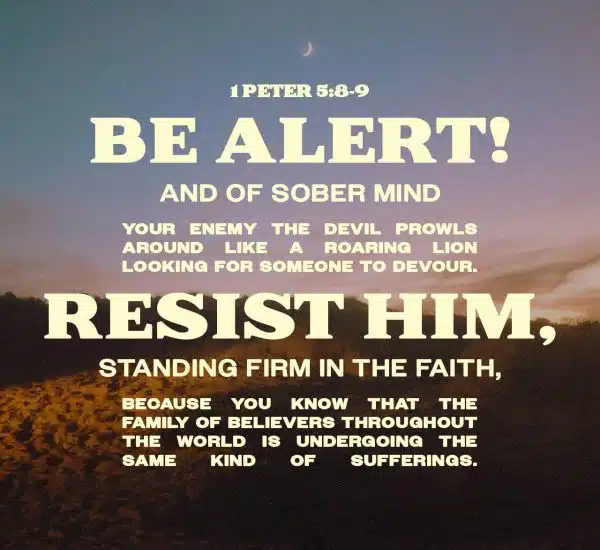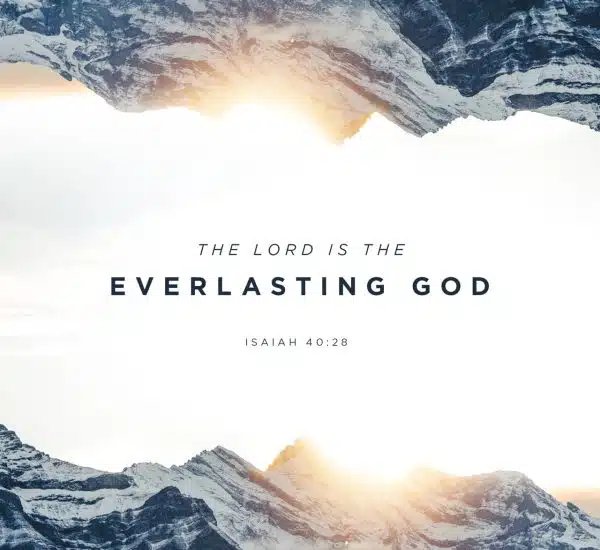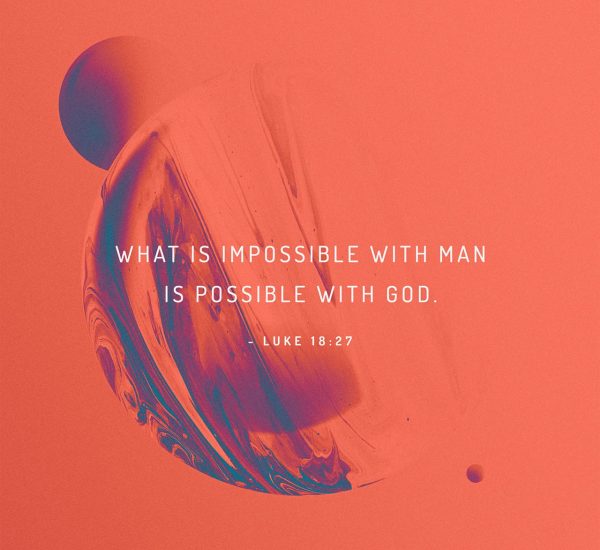TUESDAY, OCTOBER 28TH, 2025
THE ETHIOPIAN EUNUCH PRAYED: ACCESSING DIVINE TRUTH THROUGH HUMILITY
AUTHOR: PASTOR E. A. ADEBOYE & PASTOR (MRS) FOLU ADEBOYE
MEMORISE:
Then Philip opened his mouth, and began at the same scripture, and preached unto him Jesus.” Acts 8:35
BIBLE READING: ACTS 8:27-39
27 And he arose and went: and, behold, a man of Ethiopia, an eunuch of great authority under Candace queen of the Ethiopians, who had the charge of all her treasure, and had come to Jerusalem for to worship,
28 Was returning, and sitting in his chariot read Esaias the prophet.
29 Then the Spirit said unto Philip, Go near, and join thyself to this chariot.
30 And Philip ran thither to him, and heard him read the prophet Esaias, and said, Understandest thou what thou readest?
31 And he said, How can I, except some man should guide me? And he desired Philip that he would come up and sit with him.
32 The place of the scripture which he read was this, He was led as a sheep to the slaughter; and like a lamb dumb before his shearer, so opened he not his mouth:
33 In his humiliation his judgment was taken away: and who shall declare his generation? for his life is taken from the earth.
34 And the eunuch answered Philip, and said, I pray thee, of whom speaketh the prophet this? of himself, or of some other man?
35 Then Philip opened his mouth, and began at the same scripture, and preached unto him Jesus.
36 And as they went on their way, they came unto a certain water: and the eunuch said, See, here is water; what doth hinder me to be baptized?
37 And And Philip said, If thou believest with all thine heart, thou mayest. And he answered and said, I believe that Jesus Christ is the Son of God.
38 And he commanded the chariot to stand still: and they went down both into the water, both Philip and the eunuch; and he baptized him.
39 And when they were come up out of the water, the Spirit of the Lord caught away Philip, that the eunuch saw him no more: and he went on his way rejoicing.
INTRODUCTION: THE PARADOX OF THE PRINTED PAGE
There is a verse in the New Testament that holds a deep and abiding warning for all serious students of Scripture: “The letter kills, but the spirit gives life” (2 Corinthians 3:6). This profound paradox reminds us that the Bible is not merely a collection of historical facts, moral principles, or inspirational poetry. It is the living, breathing Word of God, and its true power is locked away from human intellect alone.
It is entirely possible, and sadly common, for a person to be highly diligent in reading the Bible—to study its grammar, memorize its chapters, and understand its historical context—and yet completely miss the life-transforming, salvation-bringing truth contained within its pages. The letter, the raw text itself, provides only facts; it takes the Holy Spirit (the “spirit” that gives life) to unlock divine truth and allow the Scripture to genuinely transform the soul.
The story of the Ethiopian eunuch, as recorded in the eighth chapter of the Book of Acts, is the most powerful illustration of this truth in all of Scripture. It is the story of a highly placed, diligent, and sincerely seeking individual who had the Word of God in his hand but needed the Spirit of God in his heart to understand it. His journey teaches us the essential lesson: Spiritual understanding is not a reward for diligence; it is an answer to a prayer of humility.
I. THE THEOLOGICAL NECESSITY OF SPIRITUAL ILLUMINATION
Why is the Holy Spirit necessary to interpret the Bible? Why can’t we simply rely on human reason, academic training, or cultural wisdom?
A. The Divine Origin of Truth
The reason is simple: God’s thoughts are higher than our thoughts, and His ways are higher than our ways (Isaiah 55:8-9). The Scriptures deal with divine mysteries—the nature of God, the reality of sin, the plan of redemption, and the establishment of an eternal kingdom—concepts that exist completely outside the scope of human, earth-bound logic.
The Apostle Paul put it this way: “The natural man receiveth not the things of the Spirit of God: for they are foolishness unto him: neither can he know them, because they are spiritually discerned” (1 Corinthians 2:14).
This verse delivers a humbling blow to intellectual pride. It states that the fundamental truths of salvation, forgiveness, and new life are not merely difficult to understand; they are actively perceived as foolishness by the unilluminated mind. Therefore, when we sit down with the Bible, we must not approach it as a textbook to be mastered, but as a sacred mystery that can only be revealed by its Author.
B. The Danger of Human Interpretation
The message today warns against interpreting the Scriptures based on our own experiences, environment, or culture. This is the essence of why the letter kills—it leads to misinterpretation that can result in spiritual death or, at best, a life without transformation.
Interpretation by Experience: Trying to twist Scripture to fit a personal tragedy or success, limiting God to our small, subjective reality.
Interpretation by Environment: Allowing the secular, materialistic, or humanistic philosophies of our surrounding society to water down the radical, counter-cultural call of Christ.
Interpretation by Culture: Filtering divine commands through ethnic traditions or personal biases, prioritizing man-made rules over the pure, uncompromising holiness of God’s Word.
To avoid this pitfall, we must adopt the humble posture of the Ethiopian Eunuch and pray for the Holy Spirit to reveal the truth before we read it.
II. THE ETHIOPIAN DIGNITARY: STATUS AND SINCERITY
Let us now examine the man at the center of this lesson: the Ethiopian Eunuch. His background immediately highlights the gravity of his spiritual dilemma and the depth of his eventual conversion.
A. A Man of Immense Status
Acts 8:27 describes him using three key identifiers:
- Ethiopian: He was from a distant and highly respected kingdom.
- Eunuch of Great Authority under Candace: Candace was the title for the Queen of Ethiopia. This man was not a common servant; he held a position comparable to a modern Finance Minister or Treasurer. He was educated, powerful, and wealthy.
- Charge of all her Treasure: His authority meant he controlled the finances of an entire nation. His status ensured respect, power, and access to all the comforts the world could offer.
Here is the irony: He possessed all the wisdom of the world, yet lacked the wisdom of God. He had access to every worldly resource, but the one thing he needed—spiritual illumination—could not be bought with the queen’s treasure. His status made his subsequent act of humility all the more powerful.
B. The Journey of Sincerity
This man’s sincerity is demonstrated by his extraordinary effort: He had come to Jerusalem for to worship. This journey, stretching hundreds of miles, was arduous and dangerous. It speaks volumes about his spiritual hunger. He was a proselyte (a Gentile convert to Judaism) who traveled to the spiritual center of the world to seek God.
Now, he was returning home. The journey was long, but what was he doing in his chariot, a symbol of his power and comfort? He was reading Esaias the prophet. He was using his time wisely, meditating on the Scriptures.
This is the state of many believers today: diligent, committed to reading, and sincere in their faith, yet sometimes struggling with a lack of deep, soul-stirring understanding. We read the words, but the life remains just out of reach.
C. The Humble Interrogation
It is at this critical moment that Philip, a deacon and evangelist, is directed to the chariot. Philip asks the most essential question in biblical study: “Understandest thou what thou readest?”
The Eunuch’s response is the spiritual climax of the entire narrative: “How can I, except some man should guide me?”
This is the great prayer of humility. This man, a high official who commanded armies of servants and managed national finances, willingly confessed ignorance to a stranger running alongside his chariot. He didn’t say:
- “I’ll figure it out later.”
- “I’m too important to ask a simple man.”
- “I have my own culture and background for interpretation.”
No. He laid aside his pride, acknowledged his spiritual need, and prayed not with spoken words, but with a humble question that opened the door for God’s guidance. The true prayer of the Eunuch was his profound teachable heart and his request for guidance.
III. THE DIVINE APPOINTMENT: PHILIP’S OBEDIENCE
The encounter between Philip and the Eunuch was not accidental. It was a divinely orchestrated encounter, highlighting the indispensable role of the Holy Spirit in missions and revelation.
A. The Spirit’s Precise Direction
The Bible records that the Spirit specifically told Philip, “Go near, and join thyself to this chariot.” Philip had just been conducting a powerful revival in Samaria. He was operating in great success. Yet, the Spirit pulled him away from the crowds and led him to a solitary man on a desert road.
This teaches us that God’s measure of success is not always the size of the crowd. Sometimes, the most important ministry is to the one individual who is sincerely seeking truth. Philip’s immediate obedience is a model for all ministry: Run where the Spirit directs, even if it seems less significant than where you just left.
B. Preaching Christ from the Old Testament
The passage the Eunuch was reading was Isaiah 53:7-8—the famous prophecy of the Suffering Servant:
“He was led as a sheep to the slaughter; and like a lamb dumb before his shearer, so opened he not his mouth: In his humiliation his judgment was taken away: and who shall declare his generation? for his life is taken from the earth.”
The Eunuch’s direct question to Philip was: “I pray thee, of whom speaketh the prophet this? of himself, or of some other man?”
This was the moment of revelation. Philip did not introduce new theology or quote obscure verses. He began “at the same scripture, and preached unto him Jesus.”
This is the true purpose of all Scripture: to point to Jesus Christ. The Old Testament is the foundation, and Jesus is the capstone. Every story, sacrifice, and prophecy finds its fulfillment in Him. Philip, guided by the Spirit, showed the Eunuch that the Lamb led silently to the slaughter was the Christ who died, resurrected, and now reigns. This spiritual revelation—the understanding that the text was speaking of the Saviour—is what gave life to the letter.
IV. FROM REVELATION TO RADICAL OBEDIENCE
The transformation wrought by the Holy Spirit’s illumination is not merely intellectual; it is immediately practical, leading to an open commitment to Christ.
A. The Immediate Desire for Obedience
The conversion was instantaneous and complete. As they traveled, the Eunuch saw water and immediately asked, “See, here is water; what doth hinder me to be baptized?”
The Eunuch’s first thought after understanding Jesus was not about his journey, his treasure, or his reputation. It was about obedience. True faith always demands a public, committed response. Baptism is the public declaration of belief—a spiritual burial and resurrection that shows the world one has died to the old life and risen to walk in newness of life with Christ.
B. The Simple Confession
Philip’s response was crucial: “If thou believest with all thine heart, thou mayest.” The requirement is not academic mastery or extensive theological knowledge, but sincere, wholehearted belief.
The Eunuch’s confession was simple and profound: “I believe that Jesus Christ is the Son of God.” This statement, given by a man of great authority who had just abandoned his old religious practices and worldly pride, is the bedrock of Christian faith.
He commanded his chariot to stand still—a powerful metaphor for stopping the relentless momentum of the world to attend to the urgent call of the Spirit. They went down into the water, and Philip baptized him. This single act completed the spiritual rebirth: the understanding of the Word (preaching), the belief of the heart (confession), and the obedience of the action (baptism).
C.The Outcome: A Journey of Rejoicing
The story concludes with a final, beautiful observation: “The Spirit of the Lord caught away Philip, that the eunuch saw him no more: and he went on his way rejoicing.”
The guide was gone, but the truth remained. The human vessel had fulfilled his role, and the divine Spirit had taken over. The resulting emotion was not confusion or fear of the future, but unbridled rejoicing. The fruit of true spiritual understanding is joy and peace, regardless of surrounding circumstances. He returned to Ethiopia, not just with a scroll, but with a living Saviour in his heart, becoming a likely catalyst for the spread of Christianity in his homeland.
V. KEY POINT: THE PRACTICAL PRAYER FOR TODAY’S BELIEVER
The lesson of the Ethiopian Eunuch is timeless. In an age of unprecedented access to information—with thousands of translations, commentaries, and resources at our fingertips—the danger of interpreting the “letter” without the “Spirit” is greater than ever.
The Key Point for every child of God remains: Ask God to help you understand His word before you read it.
A. The Discipline of Pre-Reading Prayer
Before you open your Bible or devotional, pause. Do not rush to satisfy a duty or check off a task. Pray a simple, heartfelt prayer like this:
- “Holy Spirit, please illuminate this text for me.”
- “Lord, shut down my human wisdom and open my spiritual eyes.”
- Show me Jesus in this Scripture.”
- Let this Word transform me, not just inform me.
This act of humility invites the Holy Spirit, the true Teacher, to take the helm. It acknowledges that even though you are saved, understanding the depths of God requires His constant help.
B. The Need for ‘Deeper, Deeper’ Illumination
The hymn Deeper, Deeper in the Love of Jesus perfectly captures the yearning that should define the believer’s pursuit of the Word. It’s not enough to be shallowly informed; we must go Deeper, Deeper in love, wisdom, and grace.
The prayer is:
Deeper, Deeper! Blessed Holy Spirit, Take Me Deeper Still. We seek a depth where our life is wholly lost in Christ and His perfect will.
Rooted In The Holy Love Of Jesus: When we are deeply rooted through spiritual understanding, we can bear fruit and withstand the hard trials of life.
This pursuit is a continuous journey. Just as the Eunuch asked for a guide for a specific passage, we must continually ask the Holy Spirit to guide us through every new chapter and every new season of life. We are never too smart, too old, or too experienced to need the Holy Spirit’s guidance.
CONCLUSION: REJOICING IN REVEALED TRUTH
The story of the Ethiopian Eunuch serves as a monumental message of hope and instruction. It assures us that God sees the sincere seeker, no matter how distant or how high their worldly authority. It teaches us that the power of the Gospel is not restricted by intellectual capacity but is released by humble desperation.
The most beautiful result of yielding our human wisdom and asking the Spirit to guide us is the joy that follows. When the “letter” is transformed by the “spirit,” our lives move from confusion to conviction, and from seeking to shouting.
May we emulate the humility of the Ethiopian Eunuch today. May we always confess, “How can I, except some man [the Holy Spirit] should guide me?” and move from reading the letter to experiencing the life, going on our way not just informed, but genuinely rejoicing.
KEY POINT:
Ask God to help you understand His word before you read it, trusting the Holy Spirit to reveal the life-giving truth.
BIBLE IN ONE YEAR: Jeremiah 51:54-52:34, Titus 3:1-15
HYMN: 44 -DEEPER, DEEPER IN THE LOVE OF JESUS
1 Deeper, Deeper In The Love Of Jesus
Daily Let Me Go;
Higher, Higher In The School Of Wisdom,
More Of Grace To Know.
Refrain:
Oh, Deeper Yet, I Pray,
And Higher Evry Day,
And Wiser, Blessed, Lord,
In Thy Precious, Holy Word
2 Deeper, Deeper! Blessed Holy Spirit,
Take Me Deeper Still,
Till My Life Is Wholly Lost In Jesus,
And His Perfect Will. [Refrain]
3 Deeper, Deeper! Tho’ lt Cost Hard Trials,
Deeper Let Me Go!
Rooted In The Holy Love Of Jesus,
Let Me Fruitful Grow. [Refrain]
4 Deeper, Higher, Ev’ry Day In Jesus,
Till All Conflict Past,
Finds Me Conqu’ror, And In His Own Image
Perfected At Last.






